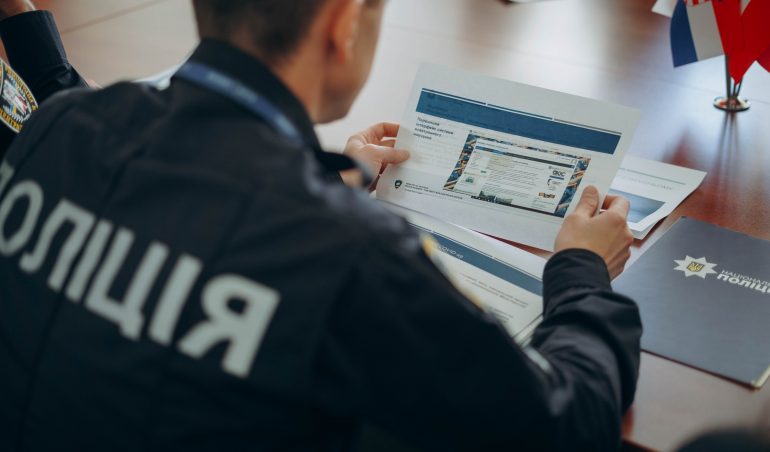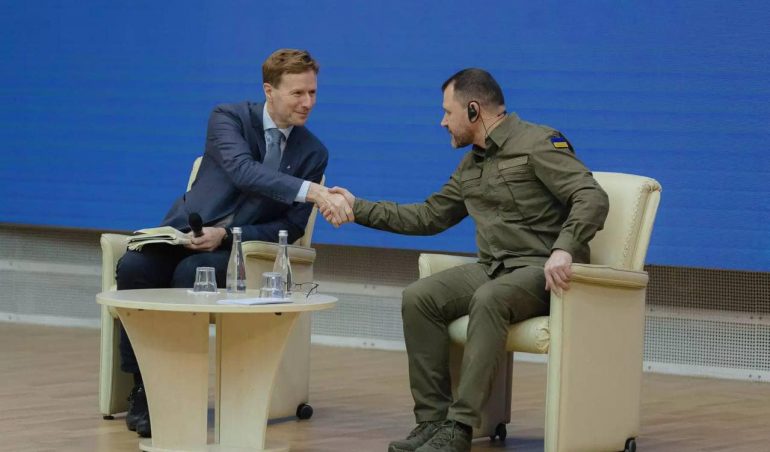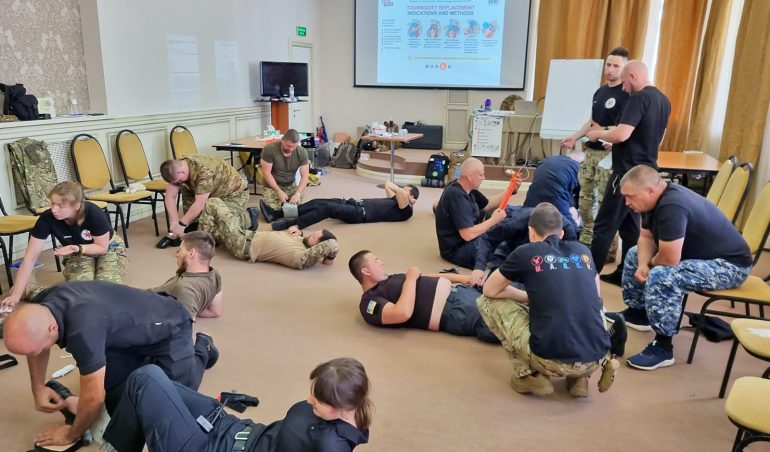Domestic violence under quarantine: police trying to ‘help those who cannot report their cases’
May 08, 2020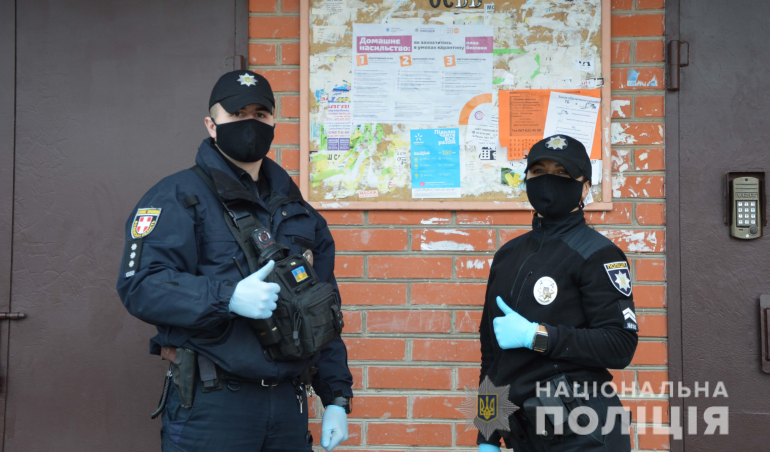
In Ukraine and around the world, more and more data suggests that domestic abuse might be increasing with the COVID-19 quarantine. As the Deputy Head of the Domestic Violence and Fighting Office of the National Police of Ukraine (NPU) Preventive Department, Yanina Pryiemska recently participated, among 65 other Ukrainian officials, in a European Union Advisory Mission online seminar to address this issue together with EU experts.
In Ms Pryiemska’s department, they monitor the way district police officers comply with Ukrainian law to prevent and fight against domestic violence. As a preventative measure, they work with those with a police record, including domestic abuse perpetrators. But Ms Pryiemska and her colleagues also organise training for other police officers and coordinate pilot projects to raise awareness of gender-based violence and violence against children. On a regular basis, they also exchange information with Ukrainian and international counterparts on the issue, just like what took place last week at the webinar with EUAM experts.
Why was it important for you to share experience with EU countries on the domestic violence issue in the context of the Covid-19 quarantine?
Yanina Pryiemska: Sharing experience is of course very useful, and not only during the quarantine. It is useful especially to discuss issues like how to provide assistance to domestic violence victims but also how to take measures to reduce latency towards domestic violence crime. I hope EUAM will continue its training on preventing and fighting domestic violence for police officers dealing with the issue.
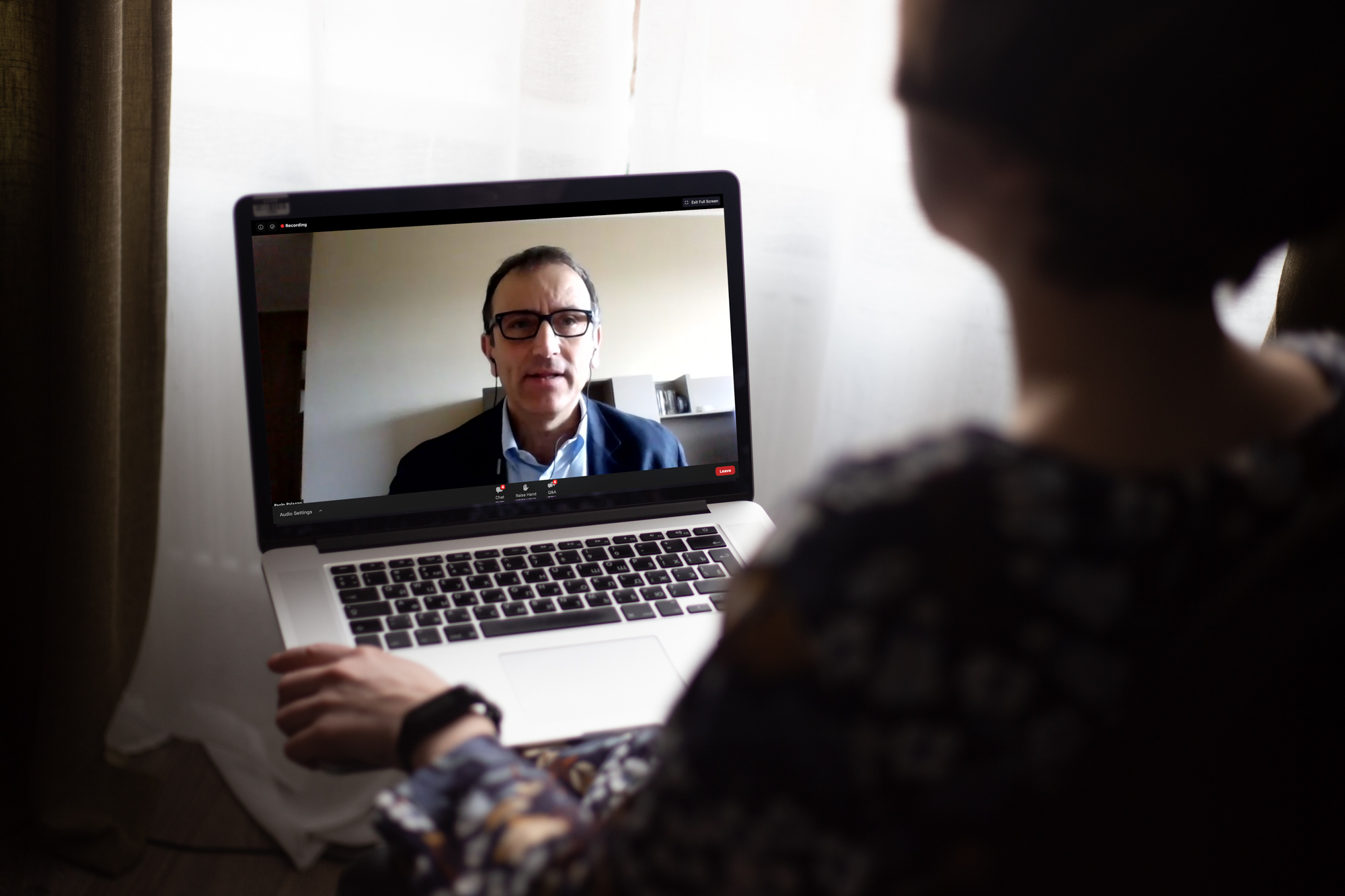
What is your feedback on this online seminar (webinar) hosted by EUAM?
YP: For me, the webinar is a rather convenient way of holding meetings, exchanging expertise and discussing issues with our international counterparts. Especially in times of lockdown like now. However, I don’t think it can fully substitute “live” training, where you can engage with the audience in many other forms.
From your perspective, what is the current situation in Ukraine?
YP: The police has not seen any rise in the reporting of domestic violence cases. So far, our main challenge is to ensure our personnel can work in safe conditions, to avoid contracting the virus. At the same time, to prevent the increase of cases of domestic abuse, especially given the lockdown restrictions, the NPU has drastically increased measures.
To prevent those crimes from happening, we communicate through mass media, outreach on the rights of domestic violence victims, as well as on where to call for assistance and advice. Our team also holds online meetings with the local police dealing with domestic violence to coordinate our actions and response to the cases during the lockdown.
With the support of the United Nations Population Fund (UNFPA) in Ukraine, all regions are provided with informative placards (picture above) on how to protect themselves from domestic violence while we are still in quarantine. These posters can be seen in many public spaces. The Ministry of Internal Affairs (MoIA) and the NPU have released an update of the chat-bot @Police_Helpbot on Telegram Messenger, where you can find almost any information in relation to domestic violence and its prevention.
What lessons have you learnt from working during the lockdown?
YP: How to help those who cannot report their cases, because they cannot inform the police or contact us in person with the quarantine. Also, how to better inform the population using digital tools.
|
@Police_Helpbot: a chat-bot to inform about and fight against domestic violence Last week, MoIA and NPU announced the release of an update of the chatbot Дій Проти Насильства (“Action Against Violence” in Ukrainian) to prevent domestic abuse all around Ukraine. As well as information about domestic violence, users can also get the contacts of assistance services at the regional level. By using Telegram Messenger, they intend to reach younger generations of the population like teenagers. For the NPU, it is also a useful way to get a live overview of the situation on domestic violence in the country. |



